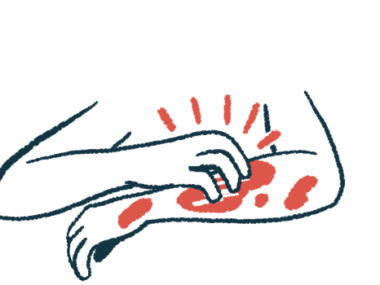RDEB Gene Therapy Candidate FCX-007 Given FDA Regenerative Medicine Advanced Therapy Status
Written by |

Fibrocell Science’s investigational gene therapy FCX-007 for the treatment of recessive dystrophic epidermolysis bullosa (RDEB) has received the regenerative medicine advanced therapy (RMAT) designation from the U.S. Food and Drug Administration (FDA).
The new status adds to the rare pediatric disease and fast track designations already granted to the therapy by the FDA for the treatment of RDEB. In addition, FCX-007 also holds the FDA’s orphan drug designation as a treatment for dystrophic epidermolysis bullosa, which includes RDEB.
These designations are all expected to support and expedite the clinical development, review, approval, and marketing of this potential treatment.
“We are pleased that the FDA has granted RMAT designation to FCX-007, which we believe offers the potential to address an unmet medical need of RDEB patients,” John Maslowski, president and CEO of Fibrocell, said in a press release. “We recognize this important designation has the potential to accelerate development and review of FCX-007, and we look forward to working closely with the FDA as our program advances into a Phase 3 clinical trial.”
RDEB is the most severe form of dystrophic epidermolysis bullosa, characterized by genetic mutations in the COL7A1 gene, resulting in the production of deficient or lower amounts of the protein COL7.
COL7 is the main protein ensuring that different skin layers are properly attached to one another. Without this protein, skin structures become more fragile and susceptible to damage, causing severe blistering, open wounds, and scarring.
FCX-007 is a cell-based therapy being developed to overcome the defects in the COL7 protein.
It is composed of skin cells collected from the patient that are then modified in the lab to carry the correct version of COL7A1 and produce a healthy version of the COL7 protein. The cells are expanded in the lab and injected directly into blisters and wounds, where healthy COL7 will form anchoring fibrils that hold skin layers together.
“FCX-007 offers the potential to address the underlying cause of the disease by providing high levels of COL7 directly to the affected areas while avoiding systemic distribution,” the release states.
Interim results from an ongoing Phase 1/2 trial (NCT02810951), still recruiting, have shown that FCX-007 is well-tolerated and helps in the process of wound healing in adults with RDEB.
The impact of treatment with FCX-007 has been evaluated in eight wounds across five adult patients; one pediatric patient has also completed dosing.
Five of the eight wounds (63%) treated with a single dose of FCX-007 were completely closed after 12 weeks. Additionally, analysis of skin samples confirmed that the amount of COL7 increased over time, and functional COL7 proteins were still detectable 52 weeks after treatment.
Supported by the positive results, Fibrocell will be advancing FCX-007 into a Phase 3 trial, calledDEFI-RDEB. Guided by a Type B meeting with the FDA, DEFI-RDEB was designed as an open-label, intra-patient controlled study expected to enroll 15 to 20 patients with genetically confirmed RDEB.
Stanford University and Colorado Children’s Hospital are participating in the study, and two additional sites are still pending.
Patients included in the Phase 1/2 trial who have not yet been dosed will have the opportunity to roll over into the Phase 3 trial.
The trial is expected to launch in the second quarter of this year and to be completed by the end of 2020. If successful and completed within the planned time frame, Fibrocell expects to file a biologics license application with the FDA for FCX-007 in 2021.





